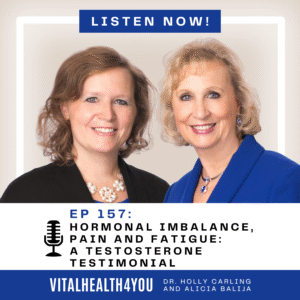The gallbladder is a simple organ, but not an unimportant one. Too easily stripped away, when the gallbladder isn’t functioning properly, we really need to be asking WHY? Most gallbladder problems start further upstream, in the upper digestive system (mouth and stomach), yet frequently that aspect is ignored, and the gallbladder is simply taken out.
Although the gallbladder is a simple organ, when diseased or stressed enough, it can be a serious matter and not to be trifled with. Pain in the right upper quadrant, nausea or vomiting, fever or chills, chronic diarrhea, pale or colorless stools, yellowness of skin or eyes are all warning signs that something is wrong and it is important to address it appropriately.
Earlier signs of a struggling gallbladder is pain over the stomach, under the xiphoid process like you were sucker-punched is a sign of the gallbladder struggling to handle fats you just consumed. Right upper quadrant pain (pain under the right ribcage) radiating either into the back or up to the shoulder are other such symptoms. Since bile (a fat-emulsifying enzyme that is released by the gallbladder) for the most part dictates color and consistency of stools, any aberration in color (especially green-black or pale yellowish color) warrants investigation of a struggling gallbladder.
In addition to up-stream digestive issues, the diet can have a major impact on gallbladder health. Foods high in sugar, fried fats, bad fats in general, excess grains and caffeine as well as an insufficiency in vegetable fibers can contribute to gallbladder disease.
We cannot discuss the gallbladder without also discussing gallstones. These stones are made up of undissolved cholesterol, bile pigments/bilirubin, calcium carbonate, palmitate phosphate, and triglycerides. When these stones cause enough inflammation, we call it cholecystitis. Cholecystitis can be either acute or chronic. It is the most frequent reason a gallbladder may be removed, but there are other ways to deal with it. The gallbladder may also get infected, get lazy and not release bile properly, have polyps or tumors, become incompetent mechanically, can get gangrene (parts die) or develop cancer. Untreated gallbladder issues can progress to worse issues, so ignoring the symptoms is not wise.
As with anything else going amiss in the body, it is important to find out why. A gallbladder that is removed because it is not working right, when the problem started with stomach digestive incompetence doesn’t handle the problem, but only handles the symptom. You may no longer have the gallbladder pain (because the gallbladder is no longer there) but it doesn’t handle the stomach problem, which is frequently an insufficient amount of hydrochloric acid – that problem will still be there. Doing proper investigative work into the underlying causative factor will do more to save your gallbladder than anything else. We want healthy function, not a band-aid approach.
©2020 Holly A. Carling, O.M.D., L.Ac., Ph.D.







